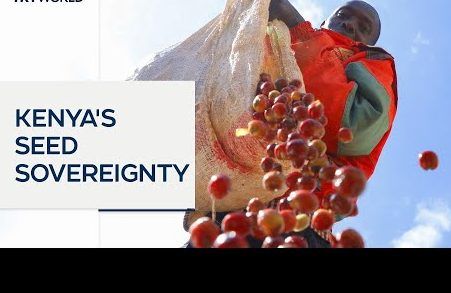
A Kenyan court has declared key sections of a controversial seed law unconstitutional, delivering a major victory for smallholder farmers and campaigners who argued the legislation criminalised traditional seed sharing.
The ruling, issued on Thursday, challenges provisions of the Seed and Plant Varieties Act, which critics say threatened the longstanding practice of farmers exchanging and selling uncertified seeds — a system relied upon by nearly 70 percent of Kenya’s agricultural sector.
For many farmers, seed sharing is essential during shortages and forms part of the nation’s agricultural heritage. But amendments introduced in 2012 and 2016 imposed strict controls, forcing farmers to trade only in certified seeds and imposing penalties of up to two years in prison or a 1 million shilling ($10,000) fine for violations.
In a brief pronouncement, Justice Rhoda Rutto ruled that the contested provisions of the Act were “unconstitutional.” The full judgment is yet to be published.
According to Wambugu Wanjohi of the Law Society of Kenya (LSK), which filed the challenge alongside Greenpeace Kenya, the law violated farmers’ economic and cultural rights, as guaranteed under the constitution.
“This is why these provisions have been declared unconstitutional,” Wanjohi told AFP, calling the decision “very significant” and a “huge blow” to the government.
The government must now either revise the Act in Parliament or appeal the ruling — a process that could determine the future of seed regulation in Kenya.
Campaigners say the judgment could have far-reaching implications beyond Kenya. Agro-ecologist Claire Nasike described the ruling as “incredibly important,” noting that it safeguards farmers’ ability to preserve and protect indigenous seeds, many of which are intertwined with local traditions.
“This is an example to the rest of Africa and the world that farmers’ rights must always be respected,” she said.
Nasike also rejected claims by supporters of the law that the restrictions were primarily aimed at combating counterfeit seeds.
The petitioners argued that the law worsened food insecurity in a country where more than 2.2 million people are facing acute hunger, according to the latest Integrated Food Security Phase Classification report.
With the contested sections now nullified, smallholder farmers and activists hope the decision will strengthen local food systems and restore a critical lifeline for Kenya’s rural communities.



